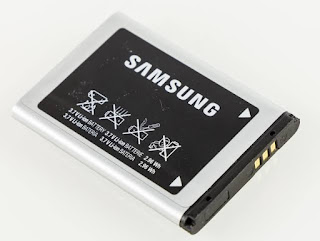A Battery That Can Last Up To One Month After A Single Charge: Here’s Everything You Need To Know About Graphene Batteries
Imagine a battery that takes less than one hour to fully charge and lasts up to a month.
Imagine how powerful your android or iOS smartphone will be with such a battery. You can endlessly take pictures and watch movies, without the fear of your phone’s battery becoming low or hot.
Let me introduce you to Graphene batteries: the next big thing in the smartphone industry.
Also Read: Apple’s iPhone 13 Release Date, Full Specifications And Price
Why the hype about Graphene batteries? What are they made of?
Over the last two decades, there has been so much advancement in smartphone technology.
We’ve gone from poor and smaller displays to bigger and better ones. We’ve also seen a massive change in the quality and size of phone cameras, with some smartphones having up to 108MP quad camera setup.
However, there has been very little technological advancement in the batteries that power our gadgets.
The best we have is lithium ion batteries, with fast charging technology that affects the battery life in the long run.
With the arrival of graphene batteries, the constant power challenges we face with our devices will be completely gone.
Our smartphones, tablets, powerbanks, laptops and other electronic devices, will be over 100 times more powerful. We can do almost anything we want with our smartphones, for as long as we want, without having to worry about our batteries.
Like the name suggests, Graphene batteries are made of graphene, one of the structural layers found in graphite.
According to scientists, graphene is the strongest material in existence. It is estimated to be over 40 times stronger than diamond and over 300X stronger than steel.
Just two of it’s layers combined can stop a bullet and also do many other unimaginable things.
As powerful as this material is, it is extremely light in weight compared to other naturally occurring materials.
Above that, graphene is also the best conductor of electricity. It can hold a charge for a very long time (up to 1 month), eliminating the need to constantly charge your phone and prolonging the battery life.
How long does graphene batteries take to charge?
Due to its unique components, graphene batteries take very little time to charge. For instance, it takes less than 20 minutes to charge a 3000mAh graphene battery to 100% using a 60-watts charger.
With this, you no longer have to wait for ages just to get your phone charged. In just a few minutes after you plug it, you will get the notification “battery fully charged.”
How long can Graphene batteries last?
Interestingly, once graphene battery is fully charged, it can stay for a very long time, without needing to be charged again.
The life cycle of graphene batteries is also very interesting. Based on numerous lab tests, it is estimated that the batteries can without 1500 charge cycles. That is by far higher than that of lithium ion batteries.
Graphene batteries vs Lithium ion batteries: Which is better and safer?
From all ramifications, graphene battery is a far better and safer option than lithium ion battery.
Unlike lithium ion battery, you don’t need to constantly charge it. Regardless of how long you use your phone, graphene battery won’t get hot. That means the chances of the battery exploding is non existent.
What is graphene battery price in Nigeria?
The arrival of smartphones with graphene batteries in the Nigerian smartphone market will cause lots of dramatic changes.
Based on the value of graphene, the price of smartphones with graphene batteries in Nigeria are expected to range from N100,000 to N400,000 depending on the brand.
For instance, Samsung graphene battery smartphones and Huawei graphene battery smartphones can cost up to US$1000.
The same can be said of flagship devices with such batteries from popular brands like Xiaomi, Vivo etc.
Graphene battery powerbanks will obviously cost less since they do not come with many features like smartphones do. So you can at least look forward to that if you are tight on budget, till when the battery will become a norm in modern smartphones. By then, the prices will crash. Hopefully.
